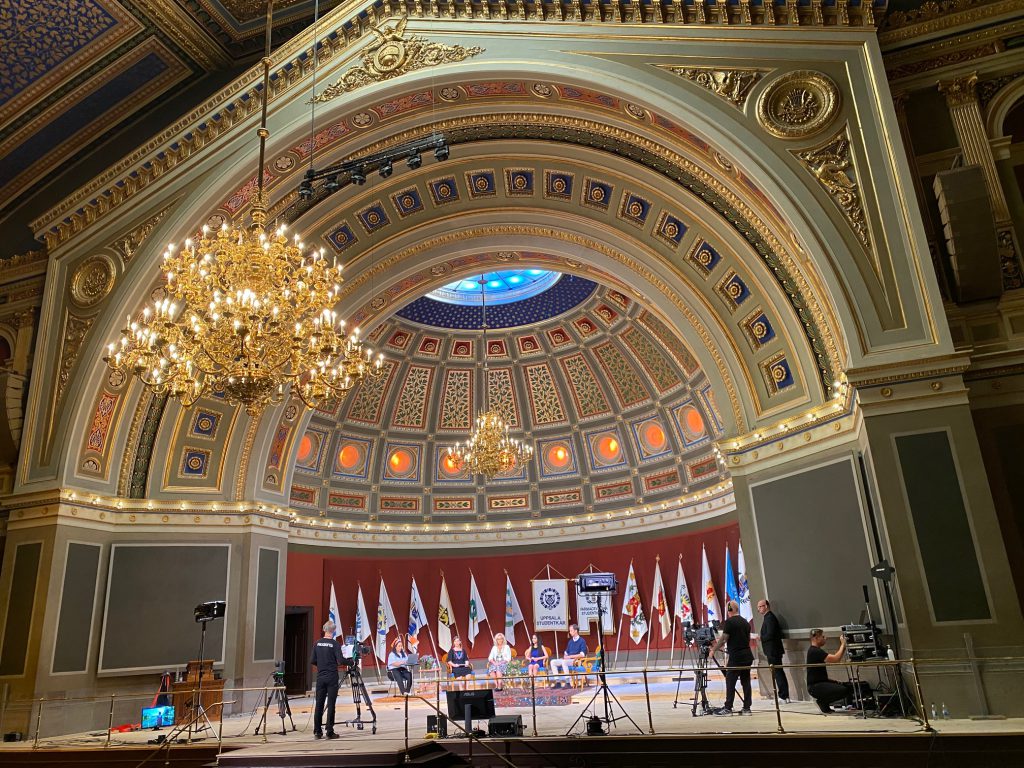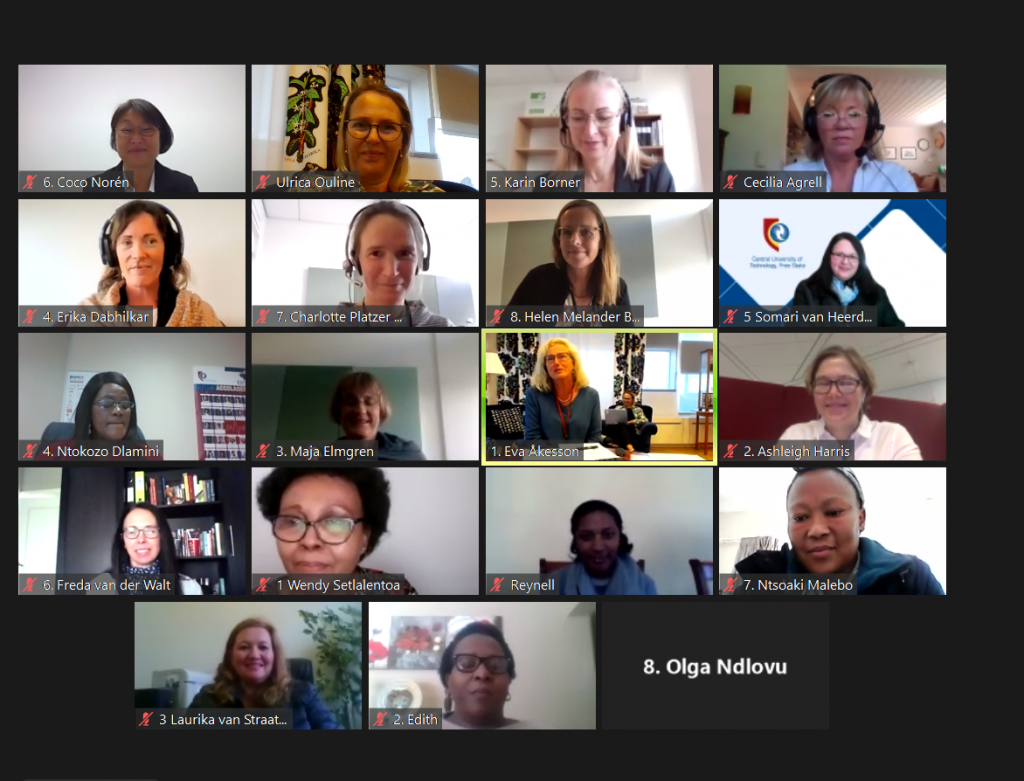This week, when we made our final preparations for the start of the semester and welcomed our new students with a digital talk show, has reminded us of the importance of collaboration with partners at all levels. Together with the region, the municipality and the students, we have tried to do everything we can to avoid any spread of infection now as the autumn begins. Everyone is doing their best and everyone has been determined to cooperate well. Now we will all play our part and encourage one another to comply with the restrictions. I sent out an appeal to our new students about this in an open letter this week.

My various meetings this week included a session on leadership development. It owed its origins to another kind of collaboration, arising out of last year’s visit to South Africa to take part in an interdisciplinary conference on the theme of sustainability under the aegis of the Swedish–South African project SASUF. That week, I was invited to the Central University of Technology, Free State, to talk about my own leadership journey. This occasion resulted in more far-reaching cooperation, leading this week to the first joint meeting via Zoom as part of their ambitious venture Next Generation Women Leadership Programme. It was planned to take place in Uppsala in May, in conjunction with SASUF’s final conference, but instead we now met online. The day turned out to be very instructive and interesting, and it was clear to me that even if we cannot meet physically, we can carry out our plans in other ways; mentoring meetings and job shadowing, for example, work perfectly well via Zoom.

The following day, together with other university leaders, I had a Zoom meeting with representatives of the adult education association Folkuniversitetet, a meeting that generated many exciting ideas about more far-reaching collaboration. Folkuniversitetet grew out of the universities’ associations of study circle leaders, which arranged study circles for the general public, and it enjoys active cooperation with universities and other higher education institutions to the present day. Two examples in Uppsala are the interdisciplinary lecture series Framtidsakademin – which involves the University’s Centre for Environment and Development Studies (CEMUS), Folkuniversitetet and Uppsala Public Library – and Korta vägen, a programme for newcomers in Sweden. We had a good discussion, which I hope will lead to new and deeper forms of collaboration. We share a common vision of liberal adult education, communicating research-based knowledge, and the activities conducted by Folkuniversitetet are very much in line with the University’s ambitions regarding widening participation and lifelong learning, for example. Together we can make one another better and I look forward to deeper collaboration in future.
In another development this week, the government announced that it was amending the Higher Education Ordinance to allow the Swedish Council for Higher Education to decide that the Swedish Scholastic Aptitude Test, which was cancelled this spring, can be conducted for a limited number of people. It is positive that this possibility will be available next spring, but it is not realistic to believe that it can be done as early as this autumn. We still have a pandemic going on.
